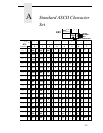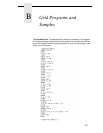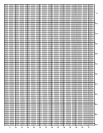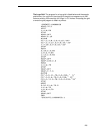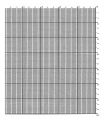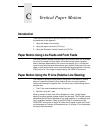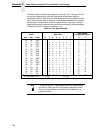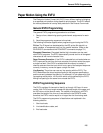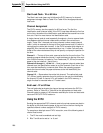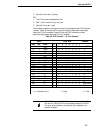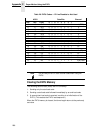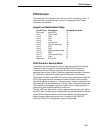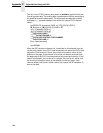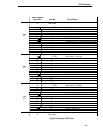
General EVFU Programming
285
Paper Motion Using the EVFU
The Electronic Vertical Format Unit (EVFU) is an efficient method of skipping
to a specified print position during repetitive printing tasks. The EVFU affects
the vertical placement of overlay data produced in the Execute Form mode.
General EVFU Programming
The general EVFU programming procedure is as follows:
1. Design a form, determining spacing and channel assignments for each
line.
2. Send the programming sequence to the printer.
The following information applies when programming and using the EVFU:
PI Line. The PI signal can be detected by the IGP as the 8th data bit in a
serial interface, or a separate input line in a parallel interface. (Refer to the
EN-PI/DIS-PI command and the PION/PIOFF commands on page 79.)
Elongated Characters. Elongated (double high) characters can be used
within EVFU programs. The EVFU automatically counts one line of elongated
characters as two normal character lines.
Paper Runaway Protection. If the EVFU is selected but not loaded when an
EVFU command is sent from the host computer, the printer moves the paper
a single line feed. If the EVFU is selected and the memory is loaded, a
channel code sent from the host, which
is not a part of the assigned sequence
currently in memory, moves the paper a single line feed.
Line Spacing. The printer can use any line spacing with the EVFU. The
EVFU determines the forms length according to the program specifications
and the currently selected line spacing. For example, 14-inch paper with 10 lpi
line spacing would yield a 140-line form which can be defined by the EVFU.
Mixing line spacing on the same form unloads the EVFU.
EVFU Programming Sequence
The EVFU provides 16 channels to identify up through 192 lines. An error
results if the EVFU form length exceeds the physical length of the page, and
the IGP returns to the Normal mode. The number of channels in an EVFU
overrides the length of the form as it was defined in the CREATE mode;
therefore, the EVFU must be equal to or longer than the form being used.
The EVFU programming sequence is listed below and explained in the
following sections.
1. Start load code;
2. Line identification codes; and
3. End load code.



